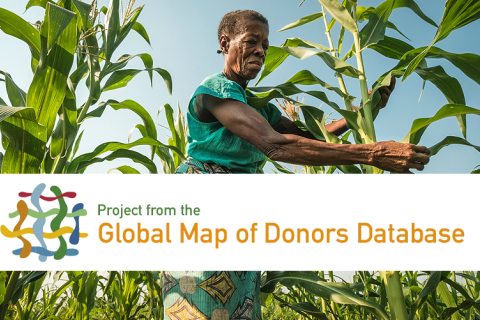The Overseas Development Institute (ODI) is the UK's leading independent think tank on international development and humanitarian issues.
Mission
Our mission is to inspire and inform policy and practice which lead to the reduction of poverty, the alleviation of suffering and the achievement of sustainable livelihoods in developing countries.
We do this by locking together high quality applied research, practical policy advice, and policy-focused dissemination and debate.
We work with partners in the public and private sectors, in both developing and developed countries.
Values
- Independence: ODI’s research, public affairs and policy advice are independent from its funders, and staff are able to challenge donor thinking and policy and the wider development consensus.
- High quality: Best practice, innovative approaches and continuous improvement are ensured in research, policy advice and public affairs.
- Fairness, diversity and equality: All staff and partners are treated fairly and with respect. ODI employment, disciplines and processes are appropriate for an institute focused on international development.
- Working together: There is continuous effort to foster better relationships throughout the organisation.
- Transparency and accountability: There is open reporting on the use of public funds, with full communication of our work to our donors, research subjects and partners.
- Sustainability: Resources are used in a sustainable way that reflects consciousness of the impact on the environment. The organisation works in a way that is sustainable, backed by commitment to its long-term viability.
Members:
Resources
Displaying 101 - 105 of 111Conflict management in community-based natural resource projects: experiences from Fiji and Papua New Guinea
This paper discusses the problem of non-violent conflicts and disputes as a constraint to sustainable natural resource management at the community level.The article finds that:third-party mediation should only be tried if viable customary approaches to conflict management have demonstrably failedthird-party mediation should only be tried if it is impracticable to try to strengthen the customary approaches within the required timeframerecent experiences in the Lakeamu Basin seem to run counter both to the popular assertion that building social capital within civil society will be ineffective
Land Tenure Key Sheet
2-page sheet covering overview of the debate, key issues in decision-making, tenure reform, redistributive land reform, key literature. Purpose is to provide decision-makers with an easy and up to date point of reference, designed for those managing change. Aims to distil theoretical debate and field experience so it becomes easily accessible and useful. Lists organisations with relevant expertise, including Oxfam GB.
ODI - Property Rights Index
General
Overseas Development Institute (ODI) is an independent think tank focused on international development and humanitarian issues. ODI has partnered with Land Alliance to scale up PRIndex, the first global index that measures perceptions of property rights among communities. The aim of this index is to provide a global and national-level baseline of perceptions of property rights, that is comparable, cost-effective, and widely accessible. This baseline will provide the grounding for a global conversation and movement around securing the property rights of an estimated 2 billion people who currently lack them. Omidyar Network is funding ODI to scale PRIndex to reach an initial tranche of 35 countries, with aspirations to reach 140 countries in the years to come.
Support to Salaries for the Project Coordinators and Accountants- Den-L
General
The project is to support 2 month salaries for the Project Coordinator and Accountant as part of closure for the EU Land Rights Project (ICD894). This will cover from 16th January through 15th March 2020.
Burundi Climate Change Adaptation & Sustainable Energy Project
General
The impacts of climate change on agriculture and surrounding ecosystems are projected to result in serious socio-economic implications for the 456,640 people living in Rutana Province. Economic models suggest that Burundi could lose over 2% of its GDP each year due to climate change related losses by 2030, and an even greater proportion thereafter. Drought scenarios show significant monetary losses for Burundi from crop loss and damage on yearly basis. Smallholders will be the most affected group due to their lack of assets to buffer shocks and limited access to the information, new technologies, finance, and government services needed to undertake adaptive actions. In response to these climate change threats, integrated adaptation measures are needed to enhance the resilience of the landscape in Rutana Province, which will sustain the agricultural production and enable sustainable growth of the region in a manner that reduces poverty, increases resilience, and achieves food security. The project’s objective is to lead to a paradigm shift in land management practices from reliance on landscapes that are degraded, fragile and unable to sustain livelihoods. The intervention will restore ecosystem function and build community resilience to enhance livelihoods, food, and water security of the most vulnerable rural population. The project outcomes that will result in the achievement of this objective are:  Outcome 1: Strengthened awareness of climate threats and risk-reduction processes; Outcome 2: Strengthened adaptive capacity for FFPO’s and reduced exposure to climate risks. Outcome 3. CSO are strengthened to advocate for international, regional national CC commitments implementation In order to achieve the three objectives, the project will pursue an integrated resilience approach that is adaptive and able to support transformation and innovative processes. The project’s Theory of Change shows how degraded and climate sensitive landscapes will be transformed by adaptive land management practices and technologies to build resilience of agro-ecological systems and livelihoods.Â





